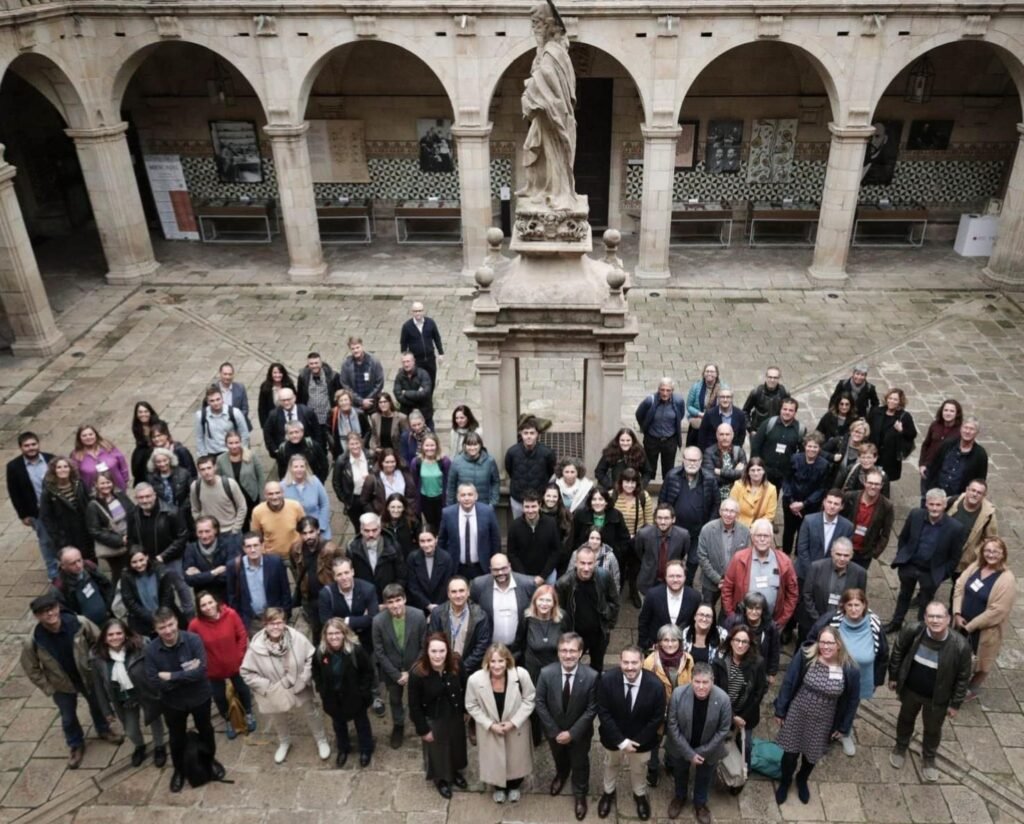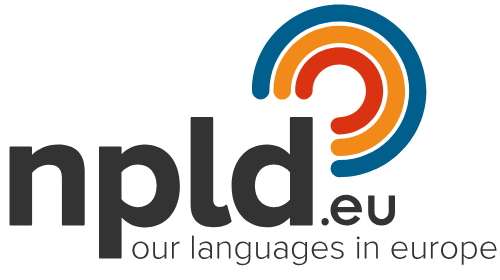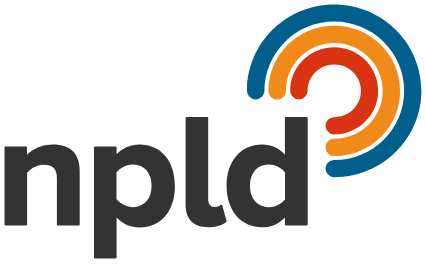

Members
The Network comprises two levels of membership -full members and associate members-. The full members are the main funders of the network and automatically have a seat on the Steering Committee (see the Structure here). The associate members pay a lesser fee and are represented on the Steering Committee by 1/3 of its total composition. All the associate members can participate and discuss issues in the Network by attending the annual General Assembly.
Full members have greater voting powers within the Network’s structure which reflects their greater financial contribution. All Steering Committee members, however, will have an influence on policy decisions and they will also be able to decide on who can be proposed as new members of the network. All members may participate in the Network’s projects and contribute to the Network’s overall policy framework.
A list of all current members, full and associate, is available below, next to the language that they represent within the Network. Click on the links for more details.
Full Members
- Bizkaiko Foru Aldundia | Bizkaia Provincial Council
- Cullettività Territuriale di Corsica | Territorial Collectivity of Corsica
- Eusko Jaurlaritza | Basque Government
- Folktinget: Svenska Finlands folkting | The Swedish Assembly of Finland
- Generalitat de Catalunya | Government of Catalonia
- Generalitat Valenciana | Government of Valencia
- Govern de les Illes Balears | Government of the Balearic Islands
- Llywodraeth Cymru | Welsh Government
- Nafarroako Gobernua | Government of Navarre
- Ofis Publik ar Brezhoneg | Public Office for the Breton Language
- Province of Trento: Fascia (Fassa Valley) – Bersentol (Mocheni Valley) – Luserna (Lusern)
- Provinsje Fryslân | Province of Fryslân
- Regjon Autonome Friûl-Vignesie Julie | Friuli-Venezia Giulia Autonomous Region
- Rialtas na hÉireann & Foras na Gaeilge | Government of Ireland
- Xunta de Galicia | Government of Galicia
Associate Members
- Afûk
- Aurten Bai Fundazioa | Aurten Bai Foundation
- Coleg Cymraeg Cenedlaethol | Welsh National College
- Convergéncia Occitana | Occitan Convergence
- Europeesk Buro foar Lytse Talen (EBLT) | European Bureau for Lesser Used Languages
- Fryske Akademy – Mercator Research Centre
- Institut d’Estudis Occitans | Institute for Occitan Studies
- Istituto di Studi e Ricerche “Camillo Bellieni” | “Camillo Bellieni” Institute of Studies and Research
- Krste Misirkov | Macedonian Movement to Promote Mother Language
- Mentrau Iaith Cymru | Welsh Language Initiative
- NHL Stenden Hogeschool | NHL Stenden University of Applied Sciences
- Noregs Mållag | Norwegian Language Society
- Oilthigh na Gàidhealtachd agus nan Eilean | University of the Highlands and Islands
- Partiumi Keresztény Egyetem | Partium Christian University
- Plataforma per la Llengua | Platform for the Language
- Prifysgol Aberystwyth | Aberystwyth University
- Prifysgol Bangor | Bangor University
- Prifysgol Cymru Y Drindod Dewi Sant | University of Wales Trinity Saint David
- Ruotsinsuomalaisten arkisto | The Archives of Sweden Finns
- Serbski institut | Sorbian Institute
- Soziolinguistika Klusterra | Sociolinguistics Cluster
- Stockholms Universitet | Stockholm University
- Universitât dal Friûl | University of Udine
- Xarxa Vives d’Universitats | Vives University Network
Become a Member
Why join NPLD?
The NPLD acts to share best practice in language planning and to set up joint, funded language projects between its members. It means that the Occitans, for example, are able to work together with world leading language planning experts from Wales or Catalonia. In addition, NPLD represents Less Widely Used Language (LWUL) speakers at the EU level ensuring that LWUL issues are addressed.
The NPLD came about from the collective work of various language planning boards (Ireland, Wales, Catalonia, the Basque Country, Scotland, Galicia, and the Swedish Finns) to ensure that there is a network in Europe that has it’s main aim in sharing best practice. NPLD represents Europe’s autochthonous languages, working for linguistic rights and meaningful linguistic diversity.
Who can join the NPLD?
The NPLD is composed of two categories of members: full members and associate members.
Full members:
European national governments, regional governments/authorities and officially recognised language planning boards can only be accepted as full members.
Associate members
European local authorities, non-governmental organisations, research centres, universities, umbrella organisations and other groups can be accepted as associate members.
Applications
A candidate-member shall deliver a written and signed application for membership in the determined form, for the attention of the Steering Committee, that will decide whether the application is provisionally accepted. The application for membership has to be finally approved by the General Assembly.
Annual membership fee
Each member shall pay to the Network an annual membership fee, which becomes payable on the first of January of each year. The amount of the annual membership fee is determined on a yearly basis by the General Assembly Meeting.
